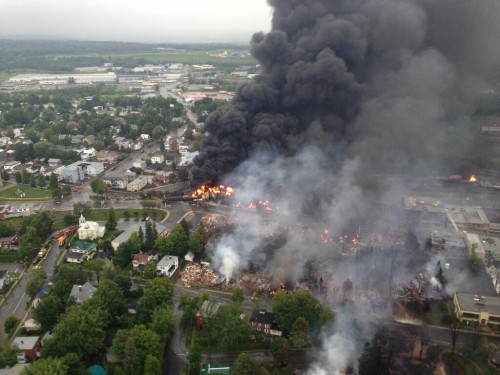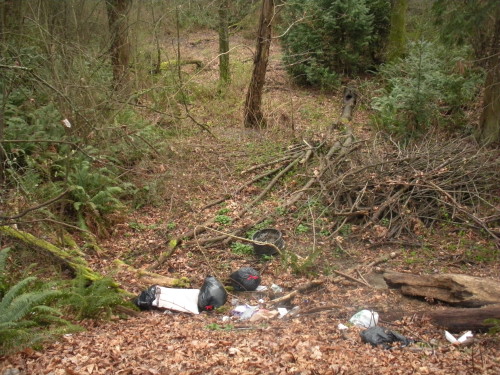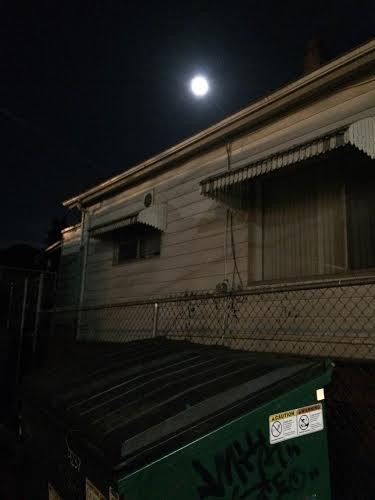I.
I was looking for my cat, but I met him instead, there on that blasted hill in the Otherworld.
I wake into the city, the city which stretches from borough to borough, neighborhood to neighborhood, downtown to downtown across the earth.
I wake into a city that does not know my gods, the Singers in the Dark. I am a foreigner, though I’m ‘from here.’ I worship ‘foreign’ gods, though they live everywhere, sing from every part of the dark.
I wake and tread through streets soaked with rain; rain which washes from the sky the haze of car exhaust, the particulate of industry. Like gods, like the dead, I walk as if invisible, unknown, and unheard.
As long as we’ve been human, we’ve clustered together along sea-shores or river-banks, along lakes or in fertile valleys. We’ve done this for millennia, though they seem ‘new.’ Paris–founded by a Celtic tribe more than 2000 years ago; London a little younger or a little older, depending how you parse it. These seem old, yet are far from the oldest in Europe and are young, infants compared to the ancients of the East.
And there are the much younger ones. The city into which I wake each morning is but a century-and-a-half old, founded by slaughterers eager to rape the hills of ancient Cedar, Spruce and Pine, selling tree-corpses down-coast to build the sprawling cities of California. And around this city has sprung more cities, cities called towns, cities called sub-urbs, webs of streets connecting them in the great modern nightmare called Metropolis.
The ‘city’ has always been a thing we’ve done. We’ve always huddled together, gathering ourselves near others.
In all the history of the world, the individual, the loner, the fully independent solitary has been a fantasy. Even ascetics and hermits relied on others, teaching their wisdom in exchange for food. We’ve gathered together in villages, settling in a place for awhile or, if it were a very good place, forever. We need others, as much as pretend we don’t. We need the land beneath us, as much as we ignore it and destroy it.
II.
He wore a black hooded tunic, his face familiar and ancient. I knew who he was from, but I didn’t know him.
‘Watch the city with me,’ he beckoned, and showed me a village.

“Lac megantic burning” by Sûreté du Québec, Wikimedia / Lic. CC
Another train derailed today. Or was it yesterday? I can’t be sure.
Carrying oil from the earth on iron rails which helped build the city I live in, carrying that oil to be refined so it could be burned so we, gathered in all the many cities, the urban and rural and in-between, can have more things.
The train derailed. Kaboom, it said, and our cars say ‘vroom, vroom,’ and at most we shake our heads and head to work, head to shop, head home in our ‘vroom vroom‘ cars as another train goes Kaboom.
It goes Kaboom like the bombs we drop on people in the deserts to get their oil.
It goes Kaboom like the explosions of pipelines along rivers, like the silent Kabooms we don’t hear and don’t see, the massive leaks into ancient rivers and forever-damaged lands, the Kaboom of a village starving or a town flooding or a glacier melting.
This whole thing’s a mess, and the city is everywhere. All the world’s a city now, except where it isn’t. The photos from space show dark and very bright, illumination into the stellar abyss fired not by internal fusion of stars but the burning of coal ripped from mountains. To power the city we once dug below the mountain; to power the world-city we rip off its top.
Do not mistake me — the rural is no innocent place, no idyllic escape from the death of the city.
I first woke to the world in Appalachia, along the eastern stretch of valley beginning the foothills of those mountains. On the bus to school I’d stare out the window upon mountaintops sheared of forest for the paper mill. On the hills further east were the explosions and the blackened streams to get at the coal beneath those sheared forests.
To the south was the alternative, the nuclear power plant where my uncle and my papaw worked as contractors. My mamaw got a settlement from the owners for each of their deaths, their skulls swollen to bursting with massive tumors. My father took care of his brother in his last days. To this day, I’m harrowed like the earth by his tales, his stories of hosing down his feces-covered twin — they could not afford hospice for him as he died.
Near the city into which I wake, it is the same.
Travel west over water to a peninsula, where there resides the last remaining rainforest in the United States, the breathing ancient pillars of the Hoh. Haunting miles of those silent giants intermittently broken by clearings and sprawling homes with hand-painted signs demanding the ‘urban’ governments allow them to cut more trees.
On a warm summer day, sunlight and joy soaking my skin, I stumbled through a parking lot of a gas-station, blinking back the light as I read the bumper stickers on trucks. Their slogans stopping my heart: “Clearcut America,” proclaimed one, and another, “One less pesky forest.”
And to live in the American rural, one must have a car.
To have a car, one must destroy the world.
Kaboom went that train, yesterday or maybe the day before–I can’t be sure. And which train? There are so many. Last year was the record for ‘unintentional releases’ on trains: 114, or one every 76 hours. At this rate, why bother counting them all?
Besides, we need that oil for our world-city.
III.
In that faded non-light, light from the earth or from the soul, I stood with him and watched the village. People gathered, lived, ate, fucked, sang, farmed, wove, and carted. And Kaboom, and then suddenly they all died.

CC. Paganarch
The city is the urban and the city is the rural. Those living far from the seas of concrete we call ‘cities’ require the urban to survive. Mounted to walls in those idyllic homes are the flat-screens translating the digital into images, and they, like the Lady of Shallot, are as free as she, bound to their seclusion, forbidden ever to see the real beyond the image.
But the images are no more real than the fantasy of the Modern. We’re surrounded, drowning, in Baudrillard’s hyperreal, gazing placidly at pastoral scenes or clicking furiously to kill orcs in hyper-real, flat forests. We raze the forests and then pixellate them, flocking to theaters to see sweeping depictions of them, looking at life elsewhere.
If we’ve some fortune, there’s some forest in our city. The city into which I wake has forest. Some are outposts of the ancients in ignored places, some tracks through trees upon which scores of joggers publicly exorcise the demons of their workday. There’s little quiet in those places as they pass, but there’s so little forest in any city, even in such a forested city, that we have to share, I think.
And all the world’s owned now, except where it’s been stolen back. I ‘stole back’ some forest park nearby for awhile, forlorn, abandoned, un-tended. The only attention it ever got was that of a few building contractors, looking for cheap places to dump their trash — old bathroom furnishings, toilet seats, appliances removed and sent tumbled-down into a stream-bed to make more modern someone’s home. Looking into that ravine filled with trash I saw again the viridian hills of Appalachia, the silent grottoes and hidden caves filled with old cars, refrigerators, washing machines, corpses of machines built to make the life of a modern worker easier. Rusted metal and enamel near where I wanted to play, a boy of 8, napping one afternoon upon a burial mound on ‘private property.’
I do not think that mound is still there. In many places, you can level a burial mound just as you can level a mountain, even more so if you’re doing it for profit and claim it’ll ‘create jobs.’ Because everyone wants to work, because everyone needs to work, because all the world is owned, and all the peoples within it. You’re worth something, because you work for someone, you turn the machines, create the codes, hand over the sandwich and count the change. If you do not work, you are not yet owned, and to be your own person, to be un-owned, is to be hungry, invisible, homeless…foreign. To refuse to submit is to be criminal. To refuse to be owned is rebellion. To refuse to consent is deemed at best eccentric, but most often insane.
IV.
Not all of them died, though. As I watched with him, survivors gathered in the ruins, rebuilding, a stronger and more vibrant settlement than before. More people, more buildings, stronger walls, more singing.
And then another destruction.

The city into which I wake, the city into which I nightly sleep, is a city full of unheard gods, the Singers in the Darkness.
Streetlamps fill the night with pale light, recently changed to rotting-flesh sallow LED to save money, not the earth. To save the earth (kaboom goes the oil-train) we’d stop driving, stop working for others, stop buying things we don’t need or even really want.
We’d even turn the lights off.
The lights block out those older lights, those farther lights from distant black shores, great illuminations in the abyssal darkness into which we once stared — which still stares back. Bathing concrete and asphalt in ghostly light, washing sombre faces and tree branch and flower-bed of the colors of life, the lights shine not into the Darkness, only into our distracted sleep.
They make safe the streets from criminals, I’ve heard, though it seems easier to commit a crime when you can see than when you are blind. The lights, I think, protect from someone else, the Singers in the Dark, waiting, whispering, chanting beyond the city from the worlds between and beyond the walls.
There’s no place for gods in a city where there’s no place for poets or the poor, no place for the dead in a city that fears shadows, no place for spirits in a world that cannot abide not-seeing.
But in a city with no place for poets, the poets persist.
In a city with no place for gods, the Singers wait, unquiet, staring from the Darkness.
The city in which I awake, the city in which I sleep, the city in which I write is the whole human world, a gate to the Human, a walled-enclave from the divine. The whole world is made up of walled, fences to keep humans in; fences to keep humans out; prisons and cubicles and schools and cages where we gather and are gathered. The homeless fill the beds of shelters; the poor crowd the jails; the workers and their autos (kaboom) clog the streets to and from the places we are demanded, the places we are shunted, and the places we are allowed.
In the downtowns, towers huddle together like the rain-drenched workers below them, waiting to cross streets to get to buses or cars, to get to home or lunch or another place to shop. Homeless beg on corners and in doorways, and it is the same in Sao Paolo as it is San Francisco, the same in Paris as it is in Orlando. The poor in the shanty and the poor in the city share blood of a different kindred, bearing upon their faces the stolen birthrights of the gods we’ve forsaken and the forests we’ve slaughtered.
The Singers in the Darkness have not stopped singing
They come through the gates to greet us, they flee through the gates at our approach.
We are so loud – our cars, music, jackhammers, fights and laughter, our stereos which surround, our engines which rumble past what needs silence to sing. We shout at nothing, a screen across which men run across false-grass. We thumb and touch and stare at the smaller screens, white tendrils clinging close to the tympani of our skull.
In these images, these frames, there can be nothing else but what we are shown. Not gates but tableaux, processions of shadows from which we weave meaning. She? She was shot. See? This kitten has had a bad day.
What are you looking at? We say to the mad, or the child, or pet, or the poet.
Everything else, they could say, but we can’t hear them.
V.
I watched as he stood silent as ages past.
Another settlement, this time a town, next time a city, next time another. Each time some calamity destroyed them, each time they rebuilt.
I’d been looking for my cat, not for the history of humanity, but when you ask the gods for something, you take what they give you, you witness what they show you.
And finally, a last city, grand, beautiful, the strongest of all, encompassing the world. The strength and brilliance and art of humanity woven into those walls and towers, a city that would not, could not end.
And I saw what was coming.
All the world’s walled now, except for the worlds between the walls, the Singers at the Gate.
We dwell between wall and wall, prison and home, school and work, city and city, all connected by roads and rails.
Kaboom says the oil train, says the dynamite in the mountaintop, says the tumor in the nuclear-workers’ brain, says the gun of the policeman, says the missile of the drone, says the dying of the earth.
What we’ve wrought is glory, is it not? I type and you read my words, I dial and you hear my voice. Strawberries in winter, transatlantic flights now with wi-fi. Medicines to undo aging, to harden the phallus past 70, to impregnate the womb past 50. Cars (vroom vroom) to whisk us to work, or to mountains (kaboom), pocket-toys to help us find sex or restaurants, lights to shine at the darkness, bombs to destroy cities.
What we’ve wrought cannot last forever, and is dying.
The Singers in the Dark scare me with their songs, they terrify me with their tales.
They are singing our death song, they are keening our end.
An oil train derailed yesterday. Or was it tomorrow?
It won’t matter much longer.
I watched the explosions, the annihilation. The disintegrated walls, the immolated children, the flattened cities.
I watched with him, who serves whom I serve, and we were silent. I waited for stirring in the ruins, for awakening in the rubble, but I knew nothing would come. No city could spring again from those ruins.
I turned away and met his face, sombre, beautiful as death but not dead, a bard of the Singers in the Darkness. “You understand now?” He asked.
I said I did. I don’t think I did, not really. I understood what I saw, but I’ll never understand why.
“Good,” he said, nodding, and turned, opening to me the Gates of the Dead.
* * *
Author’s Note: A small portion of this piece originally appeared in an essay called ‘Canticle of the Gates’, and the italicized sections are from an encounter involving Brân.
The Wild Hunt is not responsible for links to external content.
To join a conversation on this post:
Visit our The Wild Hunt subreddit! Point your favorite browser to https://www.reddit.com/r/The_Wild_Hunt_News/, then click “JOIN”. Make sure to click the bell, too, to be notified of new articles posted to our subreddit.
You’re such a good writer Rhyd ! I love the way you manage to articulate your thoughts in a way which is imaged enough to make sense and poetic enough to convey meaning. Please keep writing. I agree with you wholeheartedly bar maybe for this short section:
Those living far from the seas of concrete we call ‘cities’ require the urban to survive
Even though in practice almost all do, I still feel that the independent/interdependent rural homestead is still the closest thing to actual freedom most living humans can aspire for (bar the now virtually extinct hunter-gatherer lifestyle). Ultimately, when living within such a community it is possible (albeit not always possible or easy) to survive solely through person-to-person interaction. Something those living in the sea of concrete can never expect to do.
You fucking rock. Not in the kaboom sense though.
One of the reasons that I live out i the desert is so that I can not be too close to the craziness that we call civilization and stay same. Of course I a still part of it and aware of that, but I leave no descendants a my line ends with me. I have no idea if I will end up somewhere again or where that might be. That is strictly up to the gods.
I’ve heard that song also, and seen the inevitability of our death. It’s a difficult knowledge to carry.
I hope you found your cat.
Thank you so much for this.